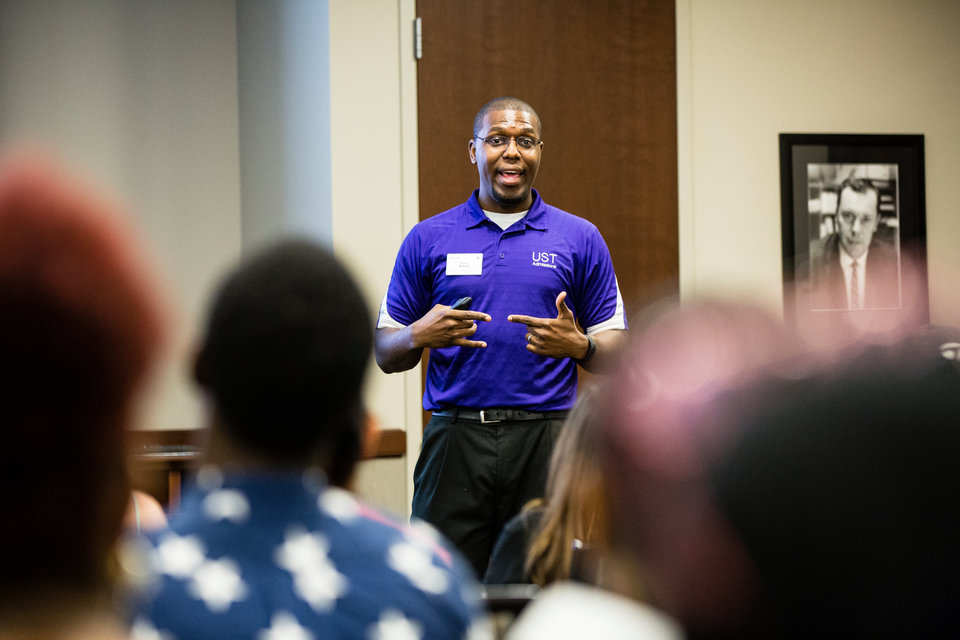Teron Buford graduated with his BSW from St. Thomas in 2010. Following graduation, he became a St. Thomas admissions counselor and then assistant director of admissions and coordinator of multicultural recruitment. With primary focus on the Twin Cities metro, he saw first-hand the struggles of many high-need students to find a path to a four-year degree that they could afford and that would give them the education and career opportunities they were looking for. These kids were often “falling through the cracks” of traditional academic institutions.
This fall, Buford was named associate director of admissions for St. Thomas’ new Dougherty Family College, which serves students who face financial or social barriers to college. The college provides a two-year associate degree and prepares students with the skills to earn a four-year degree. Students receive Metro Transit passes, meals, text books, a laptop computer, mentoring and a paid internship. Dougherty Family College is exactly the kind of program Buford saw the need for in his previous positions.
In 2015, while guiding the multicultural recruitment efforts of the university, Buford started the St. Kate’s – St. Thomas MSW in clinical social work program as a part-time student. He is set to graduate in May 2018, just as the 105 students in cohort 1 of Dougherty Family College complete their first year. Earlier this fall, we spoke about how his social work background informs his work with the college.
“I can’t drive home enough how versatile a social work degree is,” Buford said. “My training helps me to aid families, provide access to resources in the community, de-escalate situations and facilitate difficult conversations. I use skills I learned in my Communication and Interviewing Skills class daily. I even train others based on the material I had in my BSW.”
Speaking about his MSW research project, Buford said, “I’m looking at standardized tests and how ‘not kind’ they are to high-need students and students of color. More affluent students average 5-6 points better on the ACT than these students and many four-year schools set their requirements well-above what they achieve. We look beyond the numbers. We interview prospective students to see if they have the drive, motivation, resilience, grit and determination to achieve beyond their circumstances. As in social work, it’s all about focusing on strengths. From there we can figure out how we can best support them in their journey toward a four-year degree.”
Buford has talked to a number of Dougherty Family College students who are interested in the field of social work. “Many of these students have had times where they could have used – or did use - the resources of a social worker,” he said. “They understand the vital role they can play. They want the opportunity to be that resource for someone else and are interested in stopping the problems that they may have experienced themselves. They’re eager to give back to their communities.”







